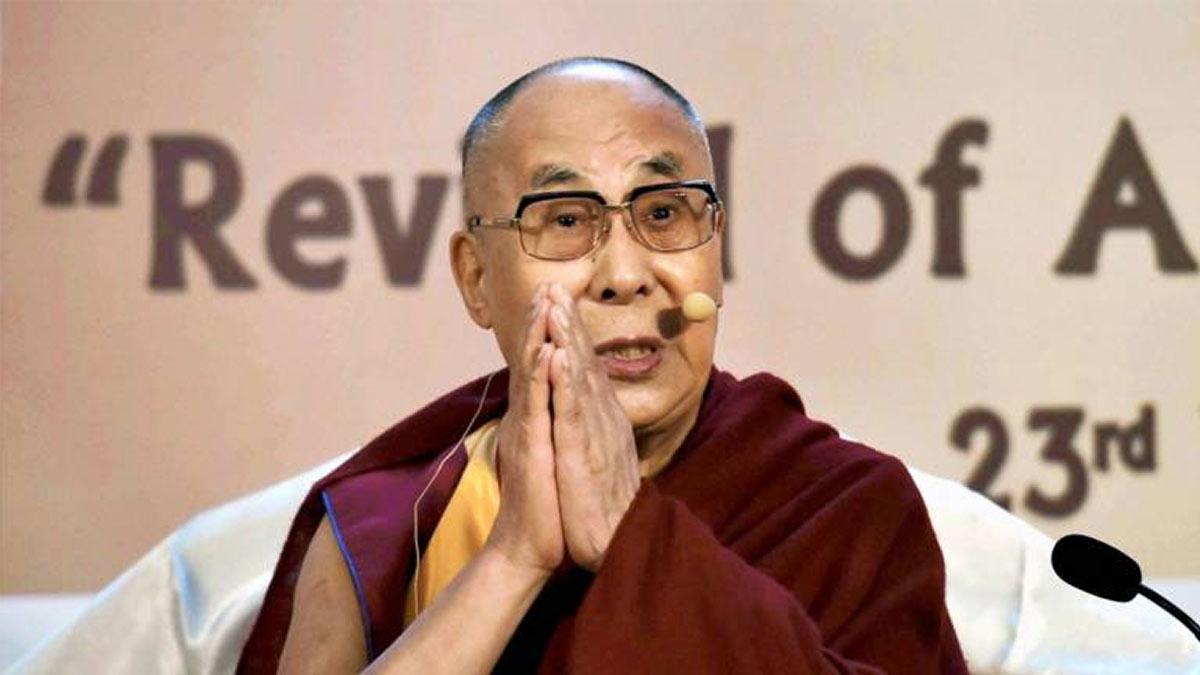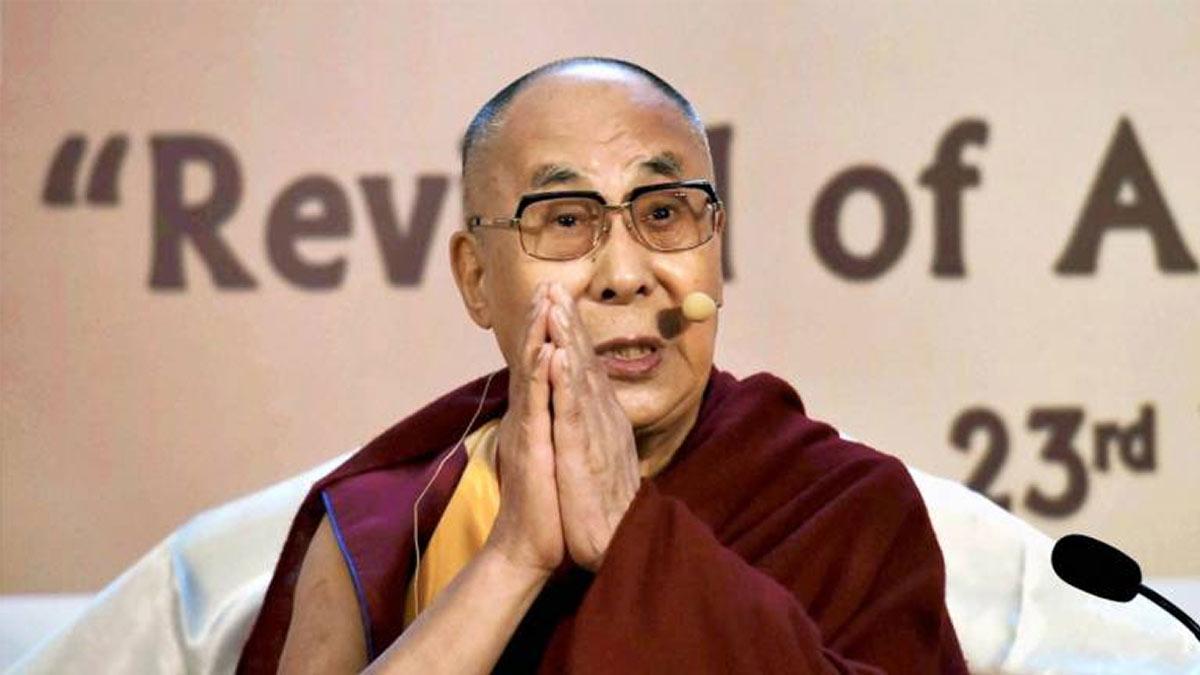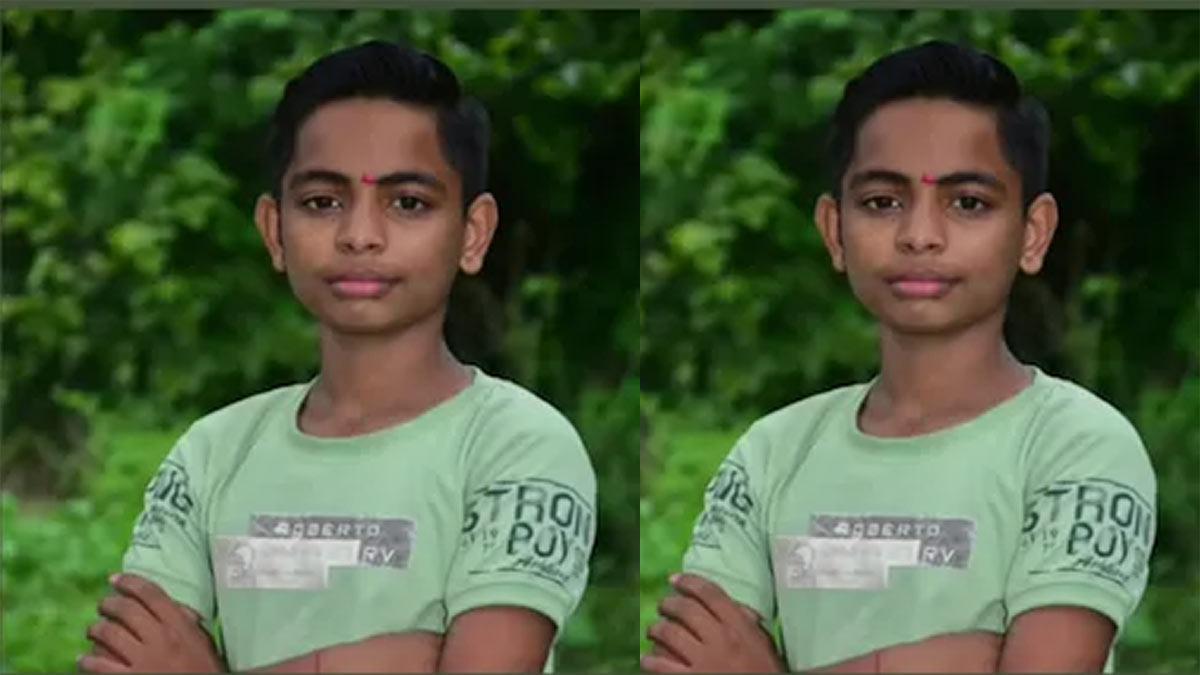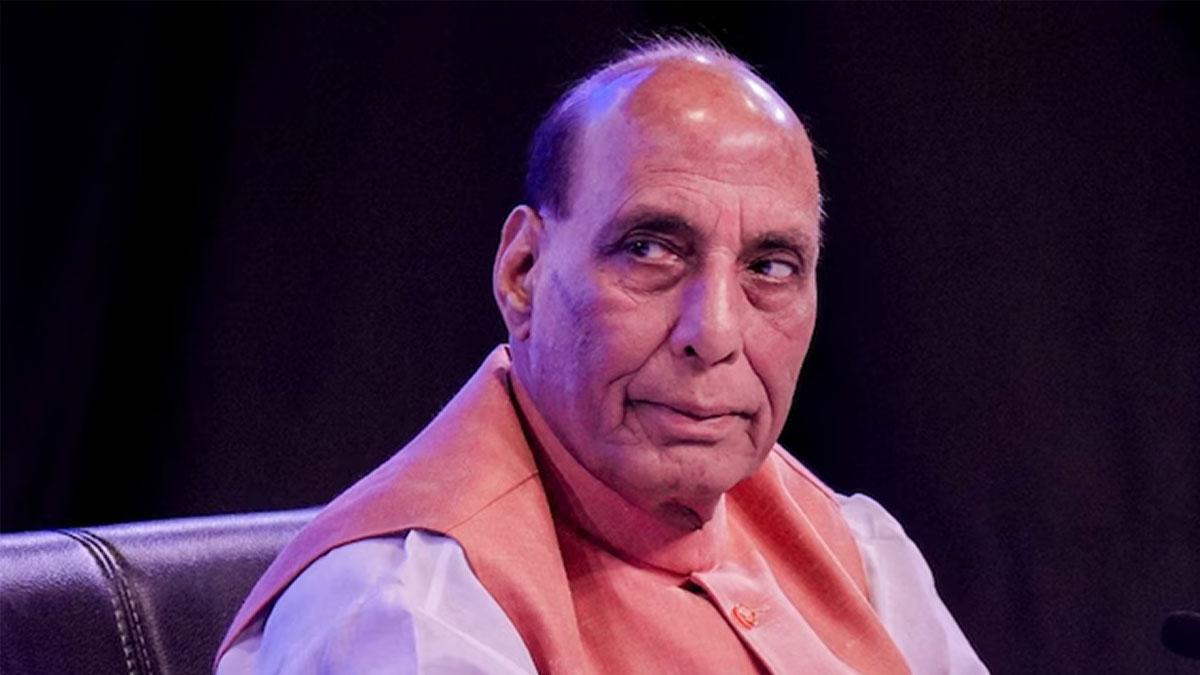Tibetan spiritual leader the Dalai Lama on Wednesday made it official that the lineage of the Dalai Lamas will continue after his death, and reiterated that the power to identify his future reincarnation belongs only to the Gaden Phodrang Trust.
Set up to safeguard Tibet's special heritage and provide assistance to those in need irrespective of nationality or belief, the Gaden Phodrang Trust would take charge of choosing the next Dalai Lama, the announcement made clear.
Addressing at the beginning of a three-day Buddhist conclave in McLeodganj—a quiet village close to Dharamsala in Himachal Pradesh—the Dalai Lama remembered an earlier announcement made in 2011 about the destiny of his institution.
On September 24, 2011, at the gathering of the leaders of Tibetan spiritual traditions, I presented my views to fellow Tibetans within and beyond Tibet, believers in Tibetan Buddhism, and people who have some connection with Tibet and Tibetans, on whether the Dalai Lama institution should continue," he had stated.
He reminded the public that as early as 1969, he had requested a consensus on whether or not reincarnations in the future of the Dalai Lama should proceed. "I also declared, when I am around ninety, I will seek the views of the high Lamas of the Tibetan Buddhist traditions, the Tibetan people, and other concerned individuals who practice Tibetan Buddhism, to reconsider whether the institution of the Dalai Lama should be continued or not," he stated.
While no recent public consultation has been undertaken, the Dalai Lama said that over the past 14 years, a number of prominent individuals and organizations—from Tibetan religious leaders and the Tibetan Parliament in Exile to Asian Buddhists and NGOs—have urged him to preserve the institution. "In particular, I have received messages through different channels from Tibetans inside Tibet issuing the same appeal.". According to all these demands, I am confirming the institution of Dalai Lama will endure," he announced.
The Nobel Prize winner, who turns 90 on July 6, reconfirmed the process for determining his successor was already described in the 2011 declaration. That process transfers absolute power to the Gaden Phodrang Trust, the Dalai Lama's official administration.
They should take counsel from the different heads of the Tibetan Buddhist traditions and the safe oath-bound dharma protectors who are inseparably connected with the Dalai Lamas' lineage. They should then proceed with the process of search and recognition according to the previous tradition. I reiterate here that the Gaden Phodrang Trust has exclusive jurisdiction in identifying the future reincarnation; no one else has any such authority to intervene in this process," he asserted.
According to centuries of Tibetan practices, reincarnation of a Lama—particularly the Dalai Lama—is not chosen but found through a divine spiritual process of signs, visions, and complex rituals. Only the incumbent Dalai Lama has the powers of recognition of his successor.
On June 30, in celebrations marking his 90th birthday, the Dalai Lama spoke to supporters: "Although I am now 90 years old, I am physically healthy and well.". All these years, I’ve worked for the good of Tibetans and the Dharma. I’ve also established links with people around the world and engaged in useful discussions with scientists. My life has been worthwhile. I’ve visited many other countries and met all kinds of people. I believe that my existence as a human being has been of value to the people of the world, and I give the remainder of my life to the value of others.
Over six decades ago, the 14th Dalai Lama escaped Chinese rule disguised as a soldier. On March 17, 1959, he fled the Norbulingka Palace in Tibet, accompanied by soldiers and ministers, following the brutal suppression of a Tibetan uprising by Chinese forces. After a perilous 14-day journey, he entered India and was granted asylum.
Having first settled in Mussoorie, Uttarakhand, the Dalai Lama moved to Dharamsala on March 10, 1960. Reminiscing about that watershed moment, he once said, "For those of us in exile, I said that our first priority must be resettlement and the perpetuation of our cultural traditions. We, Tibetans, would ultimately succeed in recovering freedom for Tibet."
Since then, the Dalai Lama has remained in exile in India—many times referring to himself as a "longest staying guest"—spending his days diligently advocating for universal human values, interfaith dialogue, and the preservation of Tibetan language and culture, founded on India's Nalanda tradition.
His new book, In Voice for the Voiceless, explores his long experience with China and throws light on Tibet's unresolved quest for freedom. It outlines his spiritual and political evolution, describing the loss of homeland and the struggle to sustain a nation's identity in exile.
The Dalai Lama was only 16 when China invaded Tibet in 1950, first met Mao Zedong at 19, and went into exile at age 25--starting a new life as the spiritual and temporal head of Tibetans in exile.
Currently, close to 100,000 Tibetans reside in India along with the Tibetan government-in-exile, still protecting their culture and spiritual practices under the Dalai Lama's care.
Read also| Indian Navy Welcomes INS Tamal, Equipped with BrahMos Missiles


















